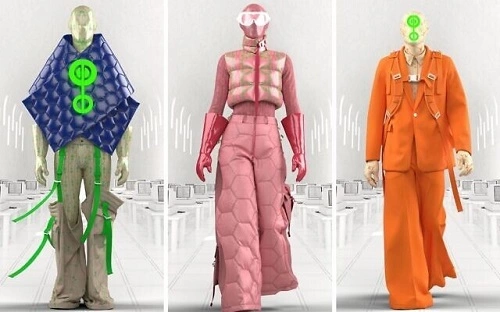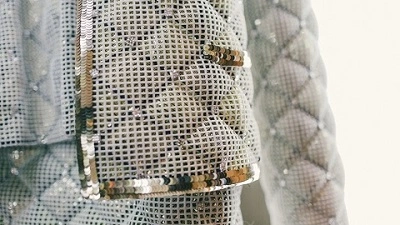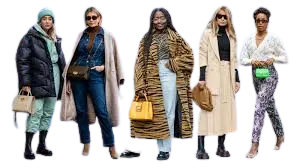Recent Fashion Innovation in Technologies Creating the Future of Fashion Industry
Famous French Fashion Designer Coco Chanel Once said, “Fashion is not something that exists in dresses only. Fashion is in the sky, in the street; fashion has to do with ideas, the way we live, what is happening.” By this line, she forecasted the future of fashion blended with nature in an eco-friendly manner with sustainability diversification and innovation. In today’s fast-forwarding world, it’s a very complex task for fashion designers to predict what will be famous soon. Again, as per the enunciation of Coco Chanel, “Fashion passes, style remains.” I must say in the same way, “Innovation passes, fashion remains”.
What is Fashion Innovation?
Innovation is the systematic practice of developing and marketing breakthrough products and services for adoption by customers. Fashion innovation means envisioning and introducing new modes of design in the fashion industry, which is crucial to circulate successfully in the fashion cycle.
What is the recent Fashion innovation in technology creating the future of fashion?
When it comes to fashion innovation, consumer adoption, and constant technological upliftment are critical. As both industries are future-driven and consumer-focused, adoption happens naturally. But for technology, not all developments are competent. A few recent Innovations in the field of fashion design are mentioned below:
Virtual Clothes
In the virtual world, it doesn’t matter our size; it doesn’t matter how old we are; it doesn’t matter if we are guys who want to buy dresses; it doesn’t matter anymore. Virtual clothing is made to fit everybody, no matter their shape. Few fashion brands have now developed designs that can be worn digitally. Using blockchain technology, this apparel is being sold online without running the risk of duplication. The clothes are then made to fit the customer’s image with the help of 3D technology to look realistic.

3D Printed Sustainable Apparel
Three-dimensional (3D) printing, or additive manufacturing, is a one-step process during which filaments or materials are applied in layers according to a geometric configuration using a digital file. In the 21st century, apparel designers and textile manufacturers are using increasingly affordable and advanced 3D-printing technology to minimize the environmental impact of fast fashion and promote sustainability by recycling existing materials and reducing production and resource waste.

Digital Runways
The industry is looking at digital environments because of COVID-19 and following the cancellation of fashion shows on a global scale. In the early phase of the outbreak, Tokyo Fashion Week rethought its runway show by streaming concept presentations online without a live audience. Inspired by Tokyo’s effort, other cities have used technology to communicate with their now ‘stay-at-home’ audience. Georgio Armani was one of the first designers to turn his collection digital during Milan Fashion Week. Audiences could view his collection from anywhere worldwide using a live stream. This marked a new era in the fashion show.

Stitch Free Sewing Technology
Ultrasonic Sewing is stitch-free technology. Now, sewing is not the only technology used to assemble the product. Now, Ultrasonic technology enables products to be totally sealed without stitch lines. This technology is revolutionary, and there are different models to choose from depending on the design application. The use of thermoplastic technology in sportswear, intimate apparel, yoga apparel, and many regular apparel items has paved the way to think and go for common casual fashionwear without a stitch.
Sustainable fashion innovation
In this Fast Fashion era, Fashion designers focus on eco-friendly materials, ethical production, and circular fashion to reduce waste. Sustainable revolution adding new dimensions in the Recent Fashion Innovation.
Artificial Intelligence (AI)
Adding AI to apparel manufacturing processes increases productivity at minimal cost. Things are going on that way; you cannot avoid AI in the fashion industry. AI enables brands to understand consumer preferences better, streamline production, reduce waste, and offer personalized experiences, thus reshaping the fashion landscape.
Conclusion
Fashion Innovation brings technological innovation, eco-friendly projects, innovative designs, fresh materials, and changing consumer preferences. The use of 3D printing for apparel and accessories, the rise of eco-friendly and sustainable fashion practices, the integration of technology like AI and augmented reality into design and shopping experiences, and partnerships between the fashion industry and other sectors like tech and science are a few examples. Fashion innovation always looks for innovative, creative, and sustainable ways to design, produce, and display apparel and accessories.

- Author: Md. Al-Amin
- Lecturer (Fashion & Design)
- Sheikh Kamal Textile Engineering College, Jhenaidah
- You may love to read: What is Circular Fashion | Advantages of Circular Fashion
- Virtual Reality (VR) in Fashion: Revolutionizing the Runway


